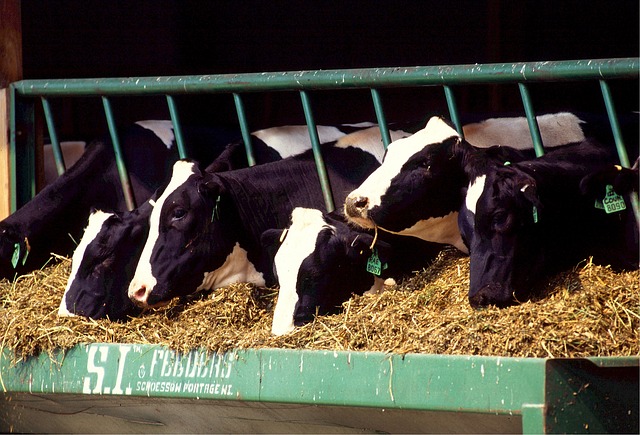By Lynda Kiernan-Stone, Global AgInvesting Media
With backing from sustainability leaders such as Hitachi Ventures and CJ Cheiljedang, Australian biotech startup Provectus Algae announced its entry into the livestock methane reduction space with its first 30,000-liter demonstration plant commissioned to scale up production of Asparagopsis animal feed additives.
“Provectus Algae’s Asaparagopis bioproduction approach is a major proof point in their photosynthetic bioprocess that can bring tangible impact to a global problem while transforming the sustainable biomanufacturing landscape,” said Pete Bastien, partner, Hitachi Ventures.
An assessment released in 2021 by the United Nations Environment Program (UNEP) and the Climate and Clean Air Coalition determined that reducing farming-generated methane levels is of high priority for fighting climate change.
Livestock emissions from both gastrointestinal release and manure account for about 32 percent of all methane emissions caused by human activity, such as farming. But why is methane so harmful?
The aforementioned report explains that methane is the primary cause of the formation of ground-level ozone – a dangerous pollutant and greenhouse gas responsible for 1 million premature deaths each year. Furthermore, as a greenhouse gas, methane is 80 times more potent at causing global warming compared to CO2, over a 20-year period.
These factors, and others, have led to ruminal methanogenesis being identified as a key battleground for meeting projected climate goals by the UN Global Methane Pledge.
Discovered and patented by Australia’s Commonwealth Scientific and Industrial Research Organization (CSIRO), James Cook University, and FutureFeed, Asparagopsis is a variety of red algae found in tropical waters in Asia and Oceania that has the power to suppress methane emissions by as much as 95 percent by inhibiting methanogenic bacteria, while also being shown to improve metabolism when used in animal feed.
However, commercial operations have found it challenging to consistently produce Asparagopsis at scale due to the algae’s slow growth in conventional aquaculture settings and ocean-farming systems, and fluctuations in bioactive compound concentrations, making it difficult to reach price parity with synthetic alternatives.
And despite a perceived price barrier to entry for such products below .50 cents per daily dose, Provectus Algae explained that Asparagopsis companies have struggled to deliver below $1 per dose. But Provectus has developed technology to answer this challenge.
Using a proprietary process called Precision Photosynthesis™, Provectus Algae is able to program algae to rapidly convert light and air into naturally sustainable specialty products for the food, personal care, and agricultural industries.
The company’s platform utilizes automated, closed-loop manufacturing and is the first-of-its-kind offering a new cost-effective, sustainable solution for producing photosynthetic aquatic organisms at scale while consistently controlling the expression of bioactive compounds, leading to a decisive shift on the cost of goods.
“Given that the agricultural industry typically operates on tight margins, the reality is that without offering a viable product at a low cost per dose, it will be difficult for farmers to adopt,” says Nusqe Spanton, founder and CEO, Provectus Algae.
“We are now confident that our approach can deliver scalable production at less than .50 cents per dose and enable wider adoption of high-efficacy bio-based methane-reducing feed additives that are cost competitive with existing synthetic alternatives.”
Further, Provectus’ modular, closed production system means that Asparagopsis can be produced at any location in the world, indicating that production can occur near farms to counterbalance shipping cost, resulting in lower carbon footprints and reduced efficacy loss from long-term storage and transportation.
The company has an existing 10 KL pilot operation, but once scaled up to its 30 KL demonstration plant, Provectus will have the capacity to produce more than 700 doses per day, ultimately removing more than 4 metric tons of CO2 equivalent enteric emissions every day.
Future plans also include the expansion of its demonstration plant to 160 KL with the construction of a new, large-scale facility in 2024, with an eventual goal of providing doses to over 250,000 animals, thus reducing emissions by over 500,000 metric tons of CO2 equivalent by 2025.
~ Lynda Kiernan-Stone is editor in chief with GAI Media, and is managing editor and daily contributor for Global AgInvesting’s AgInvesting Weekly News and Agtech Intel News, as well as HighQuest Group’s Unconventional Ag. She can be reached at lkiernan-stone@globalaginvesting.com.
*The content put forth by Global AgInvesting News and its parent company HighQuest Partners is intended to be used and must be used for informational purposes only. All information or other material herein is not to be construed as legal, tax, investment, financial, or other advice. Global AgInvesting and HighQuest Partners are not a fiduciary in any manner, and the reader assumes the sole responsibility of evaluating the merits and risks associated with the use of any information or other content on this site.

